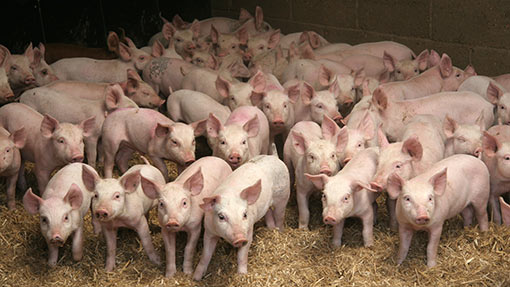Foston large-scale pig unit in final bid to woo local support

The company behind proposals to build one of the UK’s largest pig farms has made a last-ditch bid to win over locals opposing the plans.
Midland Pig Producers (MPP) held a second public consultation to clarify proposals for a 2,500-sow unit at Foston, Derbyshire, which it said had been overshadowed by misinformation.
The consultation, held in Foston on Tuesday (16 September), was the final step in the company’s four-year battle to convince locals about the plans before it submits them to Derbyshire County Council on 30 September.
MPP’s James Leavesley said working in consultation with residents helped to ensure all of their concerns had been fully addressed.
He said the proposed farm – which features technology including a three-phase air filtration system and an anaerobic digestion unit – marked the next generation in pig production and was a watershed for the UK pig industry.
“We want people to see the truth,” he said. “We have designed this building with academic experts to address welfare, health and environmental issues so that this farm will be an asset to the industry and the community.
“We believe this is the most efficient way of producing pigmeat and enabling UK producers to compete with cheap imports that might not be produced to our same levels of welfare.”
The proposals for the site have been met with fierce opposition by locals and campaigners, who are concerned the farm will cause pollution and be a risk to health.
Their concerns have been supported by the Soil Association, which said the intensive system would be detrimental to the local community and welfare of animals.
South Derbyshire district council also opposed the plans, while MPP had been asked to provide additional information on the potential environmental effect of the project on several occasions.
However, Mr Leavesley said every element of the plans had been tested to ensure every concern had been addressed.
“People should have the right to object and question what we are doing. The good thing about the delay is that it has ensured that everything we have claimed has been proven more robustly because we have done it on other farms and got the evidence.”
“We have made a decision to be involved in the industry for the future, and this is the way we think we are going to do it in an efficient and sustainable way.”
